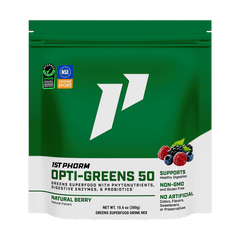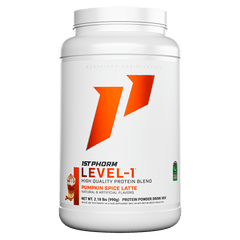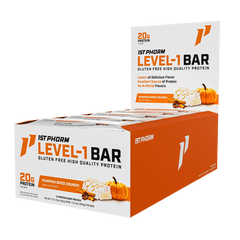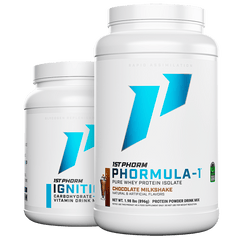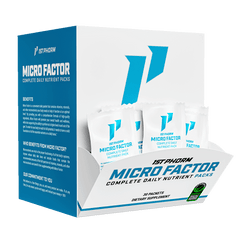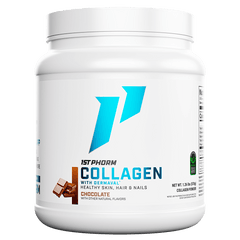Answering “What” and “When” to Maximize Your Workouts
We can thank our lucky stars for science and its progression. Of course this perspective is coming from a scientist, but the last ten to fifteen years have drastically changed (for the better) the nutritional strategies employed by athletes to maximize growth and adaptations seen from exercise. Gone are the days of dropping a few raw eggs into a cup with powdered milk and some vegetable oil to knock back a bunch of calories… yes people actually did that!
But all of the new information over the years has been great as it has allowed people like you to take better control of their diet and earn better results more quickly!
It’s simply because these research findings allow you to make better decisions and be more efficient with your training, nutrition, and supplementation. The topic or concept of nutrient timing (simply put, when you eat) is one which is discussed fairly regularly and for good reason. Science again has clearly informed us that when you eat may be just as important as what you eat.
Most people understand that if they want to get into shape, they need to place an importance on eating nutrient dense, quality healthy food. Now to take it a step further though, when you eat that high-quality food or use those high-quality supplements can help improve your results as well! When considering nutrient timing an overwhelming majority of the research has informed us about the impact of consuming nutrients during the post-exercise period… right when you are done training. Specifically, the answer to the “when” question is as soon as possible but at least within an hour after you complete a workout (Kerksick, Harvey et al. 2008), it has also been supported that inside that hour, the sooner after your workout the better (Esmarck, Andersen et al. 2001, Ivy, Goforth et al. 2002).
The answer to the “what” question says that you better ingest at least 20 to 25 grams of a high-quality protein like a whey protein isolate.
Interestingly, less is known about the impact of specifically consuming nutrients before as well as during a workout. Just slightly over ten years ago, the first study to directly compare pre-workout ingestion vs. post-workout ingestion of essential amino acids and carbohydrate excitingly told us that before your workout may be more important (Tipton, Rasmussen et al. 2001). Disappointingly, a couple of studies were conducted and using slightly different approaches these studies showed that both time periods sufficiently maximized levels of protein synthesis, but pre- or post-exercise timing appeared to offer no advantage (Tipton, Elliott et al. 2007, Fujita, Dreyer et al. 2009). The final aspect of nutrient timing relative to resistance training was to study the impact of ingesting nutrients during your workout.
In the world of endurance sports, ingesting a carbohydrate and electrolyte solution (aka, Gatorade or Powerade) was the most developed consideration, but findings related to resistance training have been harder to come by. Bird and colleagues used combinations of carbohydrate and essential amino acids and consistently reported a number of positive changes (Bird, Tarpenning et al. 2006, Bird, Tarpenning et al. 2006, Bird, Tarpenning et al. 2006). For example, levels of protein breakdown have been shown to be markedly reduced as well as concentrations of cortisol (Bird, Tarpenning et al. 2006), a key hormone which has a muscle wasting or protein breakdown effect.
An excellent study by Beelen and colleagues was completed to examine the impact of ingesting key nutrients during a resistance workout. Ten healthy males were included in this study and were required to complete two similar testing sessions (Beelen, Koopman et al. 2008). In both testing sessions, the participants completed an identical two hour workout that consisted of a brief bout of sprint cycling before completing a standard bout of resistance exercise. In one situation the participants ingested a carbohydrate solution during the exercise bout whereby in the other condition, a combination of protein and carbohydrate was ingested. Every 15 minutes throughout each workout, the assigned beverage was ingested and blood and muscle samples were collected. The findings from this research indicated that protein breakdown was reduced by 8.4% and improved protein synthesis rates by 33%. Most importantly, improvements were made in both protein breakdown and protein synthesis which favorably increased net protein balance from an overall negative balance (rates of protein breakdown were greater than rates of muscle protein synthesis) when just carbohydrate was ingested to an overall positive balance when protein was added to the carbohydrate.
Common reasons for ingesting carbohydrate surrounding your workout are for its ability to reduce protein breakdown and prevent the loss of valuable muscle proteins. But several studies indicate that adding a slight amount of protein to carbohydrates can not only prevent the loss of muscle, but it can also favorably stimulate protein synthesis which creates an overall improvement in net protein balance. So chalk another one up for science. Sure, ingesting a Gatorade or other carbohydrates containing drink can keep from taking a step backward, but why not add some protein and take a step forward?
REFERENCES
Beelen, M., R. Koopman, A. P. Gijsen, H. Vandereyt, A. K. Kies, H. Kuipers, W. H. Saris and L. J. van Loon (2008). “Protein coingestion stimulates muscle protein synthesis during resistance-type exercise.” Am J Physiol Endocrinol Metab 295(1): E70-77.
Bird, S. P., K. M. Tarpenning and F. E. Marino (2006). “Effects of liquid carbohydrate/essential amino acid ingestion on acute hormonal response during a single bout of resistance exercise in untrained men.” Nutrition 22(4): 367-375.
Bird, S. P., K. M. Tarpenning and F. E. Marino (2006). “Independent and combined effects of liquid carbohydrate/essential amino acid ingestion on hormonal and muscular adaptations following resistance training in untrained men.” Eur J Appl Physiol 97(2): 225-238.
Bird, S. P., K. M. Tarpenning and F. E. Marino (2006). “Liquid carbohydrate/essential amino acid ingestion during a short-term bout of resistance exercise suppresses myofibrillar protein degradation.” Metabolism 55(5): 570-577.
Esmarck, B., J. L. Andersen, S. Olsen, E. A. Richter, M. Mizuno and M. Kjaer (2001). “Timing of postexercise protein intake is important for muscle hypertrophy with resistance training in elderly humans.” J Physiol 535(Pt 1): 301-311.
Fujita, S., H. C. Dreyer, M. J. Drummond, E. L. Glynn, E. Volpi and B. B. Rasmussen (2009). “Essential amino acid and carbohydrate ingestion before resistance exercise does not enhance postexercise muscle protein synthesis.” J Appl Physiol 106(5): 1730-1739.
Ivy, J. L., H. W. Goforth, Jr., B. M. Damon, T. R. McCauley, E. C. Parsons and T. B. Price (2002). “Early postexercise muscle glycogen recovery is enhanced with a carbohydrate-protein supplement.” J Appl Physiol 93(4): 1337-1344.
Kerksick, C., T. Harvey, J. Stout, B. Campbell, C. Wilborn, R. Kreider, D. Kalman, T. Ziegenfuss, H. Lopez, J. Landis, J. L. Ivy and J. Antonio (2008). “International Society of Sports Nutrition position stand: nutrient timing.” J Int Soc Sports Nutr 5: 17.
Tipton, K. D., T. A. Elliott, M. G. Cree, A. A. Aarsland, A. P. Sanford and R. R. Wolfe (2007). “Stimulation of net muscle protein synthesis by whey protein ingestion before and after exercise.” Am J Physiol Endocrinol Metab 292(1): E71-76.
Tipton, K. D., B. B. Rasmussen, S. L. Miller, S. E. Wolf, S. K. Owens-Stovall, B. E. Petrini and R. R. Wolfe (2001). “Timing of amino acid-carbohydrate ingestion alters anabolic response of muscle to resistance exercise.” Am J Physiol Endocrinol Metab 281(2): E197-206.


